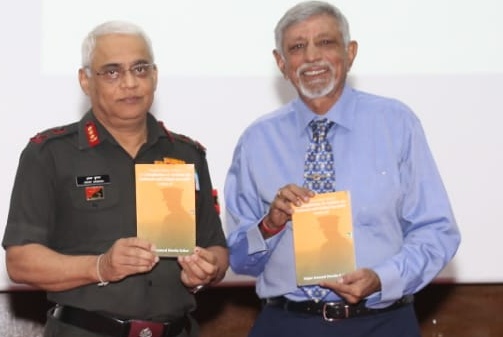
Can military veterans be curbed (English version) Rakshak News 13 Nov 19
http://www.rakshaknews.com/vishesh/can-ex-servicemen-be-suppressed
Can military veterans be curbed? (English version) Rakshak News 13 Nov 19
In recent days there has been an intense debate on whether the armed forces can issue guidelines or a code of conduct for veterans. Some basic rights, including those of protest, forming unions and speaking in public on service matters are not permitted for serving personnel. They have formal routes through which they can air their grievances. These formal routes close post retirement.
Social media has presently become the open channel through which veterans raise their objections and views. Apart from providing anonymity, when desired, it also provides a platform through which their views and objections spread. Many veterans have also assumed the role of representing the serving and writing on their behalf. In almost all instances, the complainant blames the military hierarchy for all ills which impact veterans, whether it be their medical treatment in the ECHS, restrictions on canteen facilities, disability pensions or OROP.
The criticism projected by veterans on social media is also read by the serving, as it is an open forum, and hence impacts these young minds. This influence breaks the bonhomie, trust and faith which is an essential part of the organization. A soldier obeys orders and lays down his life because of the trust he has the orders of his superiors. This criticism of the serving hierarchy leads to juniors believing that those who have risen in service do not deserve to rise, have no interest in caring for subordinates, have ignored the Chetwood motto and only seek greener pastures for themselves.
The image being projected is that those who are professional are ignored in promotions while those adopting unethical means rise. Nothing could be further from the truth. Such negative thoughts cause more harm than good to the system.
This negative criticism is exploited by forces inimical to the nation, which begins spreading fake messages on open social media platforms aiming to target the serving and impact military morale. It was to counter such negative propaganda that the army had to adopt certain strong measures including asking serving to restrict their participation in open ended social media groups and not display their ranks and service details.
It was to counter this that the armed forces toyed with the idea of introducing a code of conduct for the veteran community. Legally, such an action can neither be implemented nor accepted, unless it entails national security. Paragraph 8 of Pension regulations for the Army, 2008, states, ‘Future good conduct shall be an implied condition for every grant of pension or allowance and its continuance.’ This is further amplified by the terms ‘serious crime’, and ‘grave misconduct.’
There are two notes to the paragraph, which provide an explanation for ‘serious crime’, and ‘grave misconduct.’ Serious crime is defined by, ‘The expression ‘serious crime’ means an offence under the Indian Penal Code 1860 or Official Secrets Act, 1923 or any other law for the time being in force in the country for which the maximum punishment prescribed under the law is imprisonment for a period of 3 years or more with or without a fine.’
Grave misconduct as per the note implies, ‘The expression ‘grave misconduct’ includes the communication or disclosure of any secret official code or password or any sketch, plan, model, article, note, document or information, such as is mentioned in Section 5 of the Official Secrets Act, so as to prejudicially affect the interest of the general public or the security of the State.’ In addition, there are other reasons also given for withholding pension.
Hence attempting to issue another code of conduct for veterans may not be correct and acceptable. However, the veterans need to themselves understand the impact which their negative criticism has in the present day. It breaks the bonhomie within the armed forces as also the bonding, trust and faith between the junior and senior levels. This would be detrimental to the organization in the long term.
Veterans need to realize that they have served with honour and left the service, either voluntarily or on superannuation. The service has given them their standing in society. There would be disagreements with certain actions and decisions being taken by the serving on matters concerning veterans and they possess the right to air their views.
However, their criticism should not be aimed at degrading the service, its hierarchy or be individual specific. Veterans should be mature and careful in framing their accusations.